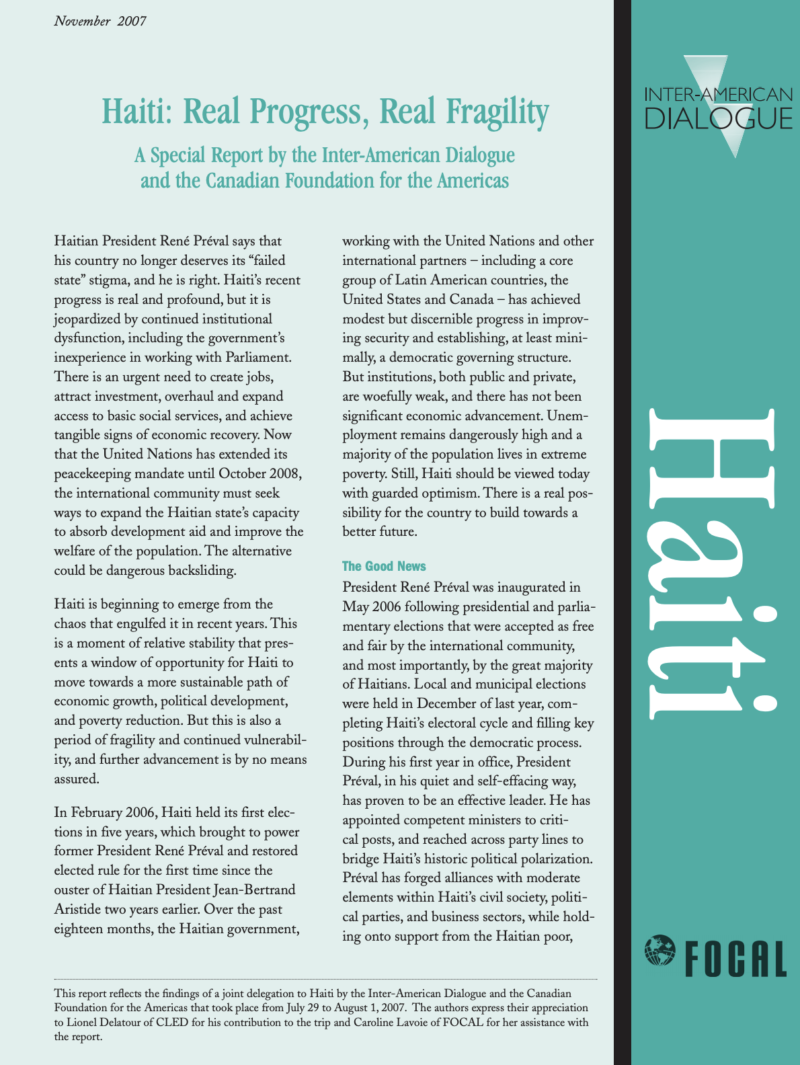New Bipartisanship Over Haiti is Promising
The sudden U.S. presidential unity on Haiti is promising, because Haiti has long been the subject of bitter partisan bickering in Washington.
Haitian President René Préval says that his country no longer deserves its "failed state" stigma, and he is right. Haiti's recent progress is real and profound, but it is jeopardized by continued institutional dysfunction, including the government's inexperience in working with Parliament. There is an urgent need to create jobs, attract investment, overhaul and expand access to basic social services, and achieve tangible signs of economic recovery. Now that the United Nations has extended its peacekeeping mandate until October 2008, the international community must seek ways to expand the Haitian state's capacity to absorb development aid and improve the welfare of the population. The alternative could be dangerous backsliding.
The sudden U.S. presidential unity on Haiti is promising, because Haiti has long been the subject of bitter partisan bickering in Washington.
The worldwide outpouring of support for Haitians from governments and ordinary citizens has been extraordinary. But this heroic phase of the emergency response is drawing to a close.
After a 7.0 magnitude earthquake struck Haiti, the aftershock reached China in ways that few anticipated.The earthquake forced Chinese leaders to navigate the tricky politics of disaster relief.
